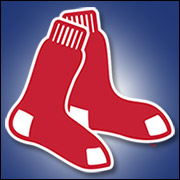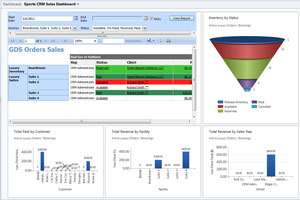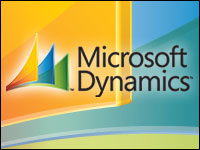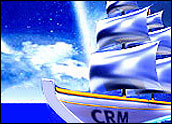
If you are a Boston Red Sox fan who splurges on luxury seats, don’t be surprised if the organization suddenly seems much more familiar with your tastes and preferences. Last year, toward the end of the season, the team deployed parts of Green Beacon Solutions’ Sports CRM app, which is based on Microsoft Dynamics CRM.
Luxury sales was just one of the areas in which it rolled out the application, Curran Raclin, senior operations analyst for the Red Sox, told CRM Buyer. It resulted in roughly 20 percent more conversions.
“We think we can increase it much further this year now that we are more familiar with it,” he said.
A New Set of Tools and Data
Features in the sports CRM app include the usual range of functionality, but oriented to the needs of a sports team.
Like most CRM apps, it lets users track and manage disparate information, incorporating finance, sales and, most importantly, customer service in a single system.
For example, the system provides the sales team with transparency into the inventory management module — in this case, premium seating and event venues. Then, with the help of predictive analytics and better customer data in the system, the team is able to develop promotions and marketing programs targeting specific customer groups according to their seating and game preferences.
‘A Lot We Wanted to Accomplish’
When the system was first deployed, there were several issues the Red Sox wanted to address, Raclin said, starting with ticket sales strategy. “We wanted a better way to approach this, such as incorporating the various stats we had on our fans into the sales operation.”
Before the deployment, the Red Sox had been relying on its own home-grown databases, which were based on Excel, to track fans and their seating preferences. This fell short, especially in the area of luxury seating, Raclin explained.
“The CRM system gave us a better view of what we can book, when certain seats were available, and in terms of customer knowledge, who liked what,” he noted. “We no longer were relying on our gut for how well we were doing.”
Adding More Modules
All told, the Red Sox deployed the app’s modules for premium sales, case management and patron history in quick succession right before the start of last season.
“This year, we are looking to install the app in more areas, such as fan services and family enterprises,” Raclin said.
Fan services, for example, currently uses a series of older databases and could use a single view of what is happening throughout the organization — and vice versa.
“So when a fan talks to someone in fan services, that record will also show up in ticket services,” said Raclin.
“Family enterprises” is the Red Sox’s name for non-game day events. If someone wants event space for a meeting or party, it is booked through this office. It’s hoped that adding the inventory management and booking functionality will deliver a similar conversion rate as with luxury sales.
Besides expanding the application into more areas of the organization, the Red Sox may upgrade the system, Raclin said.
“We are considering upgrading the analytics in the reporting side as well as the input side. That way we can maximize the amount of data that can be put in the CRM system,” he explained, “and it will spit out better and cleaner reports for executive review.”

























































